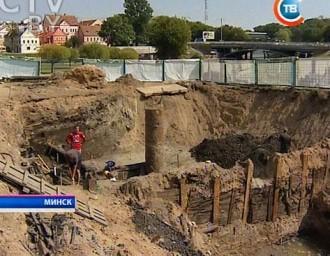Renovation projects of the Minsk historic downtown and the city Zamčyšča to be completed in the nearest years
 minskae_zamchyshcha
minskae_zamchyshcha
Minsk Mayor Nikolai Ladutko reported about renovation of the most part of the Minsk historic downtown at the opening ceremony of Mikhail Savitsky’s art gallery on September 7.
The design for the renovation has been coordinated with President of Belarus Alexander Lukashenko back in 2005, and the very project will be completed in 2013.
According to the Minsk City Administration Chairman, a total of 114 objects in the Minsk historic downtown have been upgraded, over 70 objects’ve been put into operation, 7 more will be inaugurated this year, BelTA reported. The works cover the area of 115 hectares.
After the IIHF World Championship which the country will presumably host in 2014, Minsk will launch a large-scale project of the city Zamčyšča (Castle) renovation. It will include a construction of an archeological museum, a museum of the history of the city and restoration of the Niamiha riverbed.
Plans for the construction of a new Zialieny Bor neighborhood near the village of Kalodziščy, to be started in 2013, have been also presented at the event. About 35% of buildings will be ten floors high, another 35% four and five floors high, and others will be lower, according to the new scheme to be applied there.
-
03.01
-
07.10
-
22.09
-
17.08
-
12.08
-
30.09



























